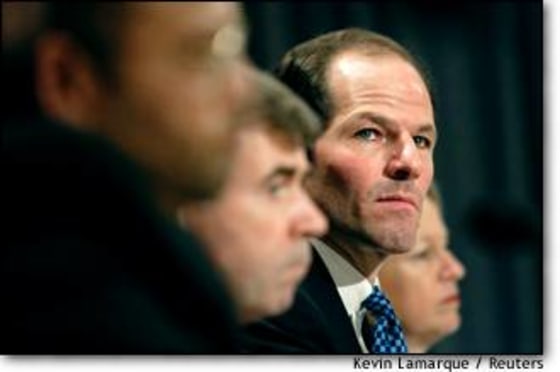A source close to Eliot Spitzer’s office said Wednesday the New York attorney general would like to reach settlements with all the firms who’ve engaged or enabled illegal mutual fund trades by the end of the year.
The source said all settlements would be reached in conjunction with the Securities & Exchange Commission.
Speaking before Congress on Monday, Spitzer made it clear one element of any settlement would be payback for investors. Those firms that settled would also pay fines and, importantly, agree to adopt reforms preventing further abusive mutual fund trading, the source said.
Since the probe became public in September, Spitzer’s office has sent out more than 100 subpoenas. The groups targeted include mutual fund firms, hedge funds, trust companies and broker-dealers.
Not all the firms who’ve been subpoenaed are thought to be guilty of illegal mutual fund trading, but over the past two months this practice has been uncovered in companies ranging from Putnam Investments to the Strong Financial to Bank of America.
One firm which could be charged as soon as next week is Alliance Capital. Sources close to the SEC and Spitzer’s office told CNBC that civil charges will be filed against the firm for allowing market timing trades in their funds, and possibly for improper portfolio allocation.
Market timing is a rapid trading strategy discouraged by most fund companies because it hurts the returns of long term investors. It is prohibited by most mutual fund companies.
Alliance declined comment. The firm was mentioned in Spitzer’s original complaint kicking off the mutual fund investigation because of its trading relationship with the hedge fund Canary Capital Partners, LLC.
And following Tuesday’s charges by state regulators and the SEC that market timing trades were conducted by brokers in Prudential Financial’s Boston office.
The National Association of Securities Dealers is investigating the same office engaged in late day trades, and whether Prudential had the proper controls in place to ensure these trades didn’t happen.
Though the SEC and state regulators filed civil charges against seven former Prudential brokers and supervisors, the firm itself, now a minority owner of the brokerage unit, was not charged.
Still, regulators say their investigation is ongoing. Calls to Prudential were not returned.
Late day trading could result in criminal charges against the firm. Late day trading is when a customer is allowed, illegally, to buy a fund after the fund has set its closing price for the day.
